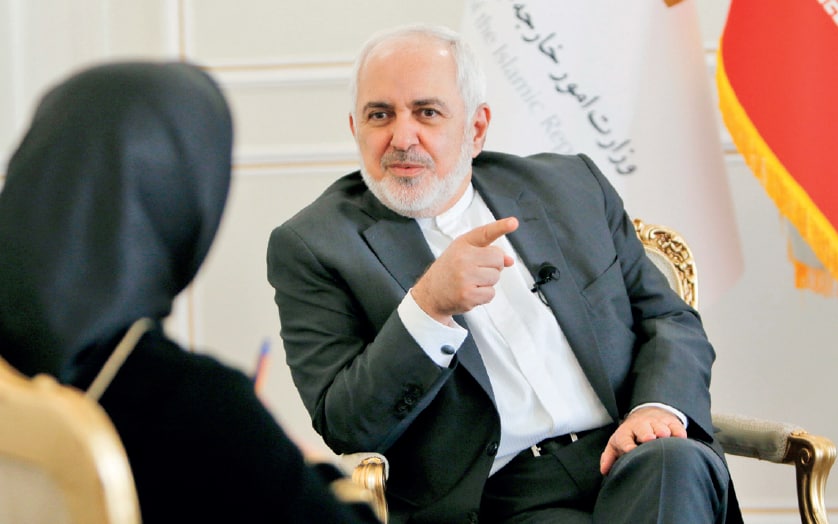Speaking in an exclusive interview with the Iranian daily newspaper Etemad, which was published on Saturday, Jan. 23, 2021, Zarif said Iran needs to draw a final shape of the future of its relations with the United States.
“In my personal view, which does not represent the country’s view, we should delineate the final shape of relations with the US. We should tell the US that we won’t cooperate with you on the issue of Israel, and we’ll continue to disagree with you on that. We won’t get along with you on the issue of hegemony, and won’t let you interfere in Iran’s domestic affairs, but we have no problem working with you on the issue of oil,” Zarif said.
“We also have no problem if the Persian Gulf security is ensured [through cooperation], even though we believe foreign presence in the Persian Gulf brings about insecurity, and you [Americans] should not be here.”
“We believe democracy needs to be established in Afghanistan, as we [Iran and the US] reached an understanding in Bonn in 2001, but we believe your presence in Afghanistan is dangerous,” he added.
“We need to have a serious picture of general [outline of relations] in the future with the US, and then hold negotiations [with the US] on issues we decide, not on all issues,” Zarif said.
He said he has never believed in tension and escalation, but he believes Iranian people have an identity to preserve.
“This is a cultural, civilizational, and national identity. National identity does not allow an American to say ‘if I stop supporting Iran for a week, they will be speaking Arabic, Russian or Chinese’,” Zarif said.
Zarif quoted former US secretary of state Henry Kissinger as saying that Iran is heir to the world’s oldest national identity. “This is why we cannot accept that someone rules over us with bullying.”
He said the Americans have been accustomed to dictating their demands to other sides, but that did not happen for them in the case of the 2015 nuclear deal between Tehran and world powers.
“The nuclear deal (JCPOA) was opposed by two groups: Iranians and Americans. Few people had any problem with the JCPOA in Europe. Why? Because Americans are used to dictating their demands whenever they have interaction with someone, but there was no dictation in the JCPOA,” the Iranian top diplomat said.
“Likewise, Iranians are accustomed to resisting, especially after the 1979 revolution. There was resistance in the JCPOA, but its final word was interaction. This was why there was opposition to the JCPOA both in Iran and the US,” he added.
“Where do you think the US’ call for a change in the JCPOA’s timetables or inclusion of regional and missiles issues in the deal comes from? This is exactly where we disagree. It’s because they have a saying which says ‘what’s mine is mine, and what’s yours is open to negotiation’. This way of thinking may work in many parts of the world, but not with Iran.”
